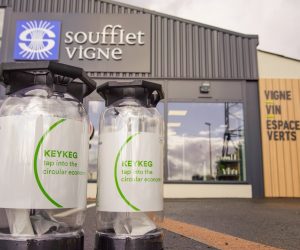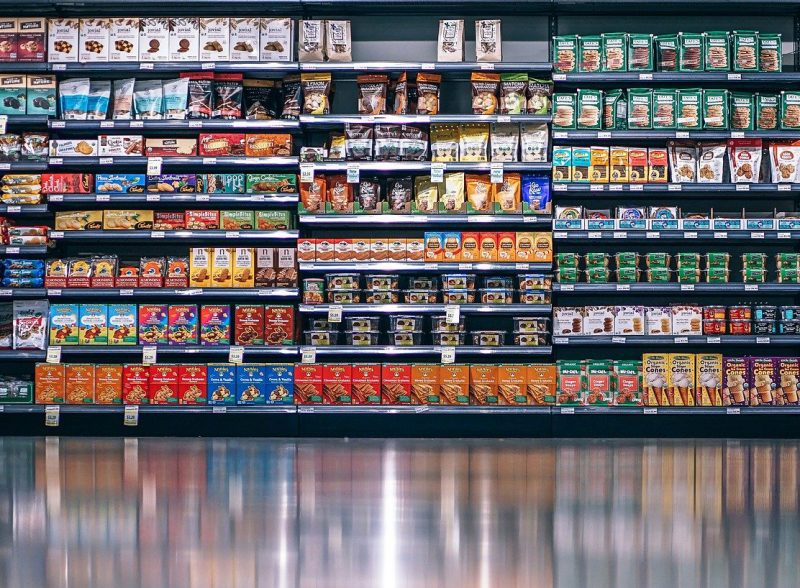

New research reveals the top FMCG brands deemed most sustainable by consumers
A new study by consumer research agency Impact has revealed the top 5 FMCG brands perceived as sustainable by consumers. Sustainability metrics are now one of the top four factors for consumers when choosing an FMCG brand. Impact spoke to 6,000 UK consumers to find out their views of sustainability amongst 100 renowned brands.
Impact carried out qualitative research with consumers to determine the top factors that most influenced their perception of sustainability. These were social responsibility, environmental friendliness, financial responsibility and ethics. Consumers then assessed the brands on these factors in the quantitative study. The scores were then weighted according to the importance of each factor and each brand was given an overall ‘sustainability score’ out of 100. The following brands achieved the highest scores and secured a spot in the sustainability top 5:
| FMCG brand | Sustainability score |
| Ecover | 80.1 |
| Rude Health | 72.6 |
| Linda McCartney Foods | 72.5 |
| Method | 72.1 |
| The Cheeky Panda | 70.7 |
The brands consumers perceive as the most sustainable are those that were specifically created with sustainable messages as their differentiating factor. Ecover and Method, for example, were created to reduce the environmental impact of cleaning products; Rude Health and Linda McCartney make dairy free and vegetarian alternatives, and the Cheeky Panda produces sustainable essentials such as toilet paper and wipes. Over 75% of consumers think that each of these brands are environmentally friendly and almost 70% think that they are socially responsible.
These top five brands are all smaller brands which are making a mark by being sustainable. More established brands are struggling to compete against these newer sustainable disruptors, however they have been making progress in improving perceptions of sustainability. For example, out of the brands analysed, Heineken’s sustainability score increased significantly in the last two years. With the brand putting in place plans to eliminate plastic waste, reduce carbon emissions and releasing a new sustainable cider brand, the score went from 39.7 to 45.5.
Cosmetics and self-care giant L’Oreal has also become more sustainable in the eyes of consumers, gaining 7.3 sustainability points in the last two years. The brand introduced make-up recycling bins across 1000 high-street stores, and it’s moving towards 100% recycled or bio-based plastic bottles aiming to be fully sustainable by 2030.
However, FMCG brands have more to do to convince consumers of their concern for the environment. Although the government is considered most responsible for tackling climate change, over half of consumers believe manufacturers are also responsible, and 86% say companies need to do more to help the environment. A third of consumers however don’t believe claims that brands make about being environmentally-friendly, and this statistic is highest for the soft drinks sector (42%). Brands that want to communicate their sustainability messages effectively need to back up their claims with visual cues and create focused, authentic messaging. Consumers want evidence that brands are making progress to become more sustainable, rather than vague promises for the future. 80% of consumers believe that companies should be more transparent about what they are doing to help the environment and 65% of consumers say they want to know what brands are currently doing to be environmentally-friendly, not what they plan to do. Focusing on current activities inspires more positivity amongst consumers than pledges for the future; 47% say they would feel more positive about a brand claiming they are currently using 100% renewable energy, compared to 32% who would feel more positive about a brand claiming they will be using 100% renewable energy by 2025.
To optimise cut through, brands should share their sustainable activities in their messaging and content. And they should investigate what the best channel is for their communications strategy depending on their target audience. 50% of consumers say brands should be talking about their sustainability messages in their TV advertising and on their packaging. While 41% of younger consumers (18-24 year olds) feel brands should talk about sustainability in social media posts.
Tom Gould, Research Director and Head of the Consumer & Services team at Impact, said, ‘Driven by increasing media attention, sustainability is becoming increasingly important to consumers. For example, 64% say that their views of plastic packaging have been influenced by what they see in the news. Our study shows that consumers want to see brands addressing the issues they see talked about in the media. It’s more important than ever that brands are communicating environmental issues in the right way and in the right places not only to be taken seriously by consumers, but to avoid controversy.’
Methodology
Impact spoke to 6,000 consumers from a nationally representative sample of UK adults in April 2021, to find out consumers’ behaviour and attitudes towards the environment, who they believe is responsible for tackling climate change and their perceptions of sustainability amongst 64 retailers and 100 FMCG brands. The first wave of the study was conducted in October 2019. Since then they have spoken to over 18,000 consumers over the 2 years, and data has been collected every 6 months since to track changes.
Prior to the survey’s first wave, Impact completed focus groups to define the meaning of sustainability amongst consumers. They found that four key factors influenced the perception of sustainability: social responsibility, environmentally friendliness, financial responsibility and ethics.





